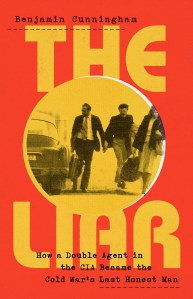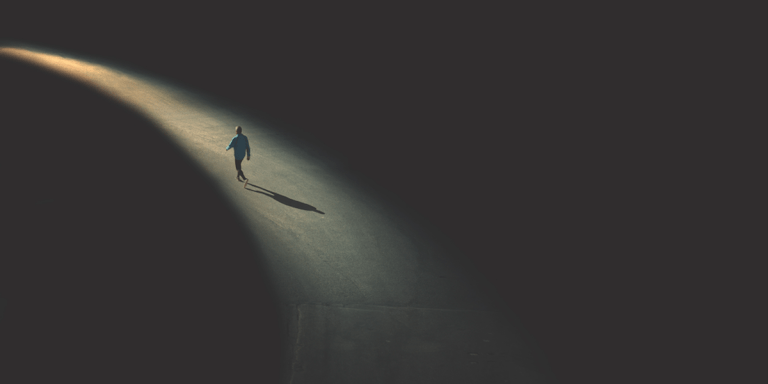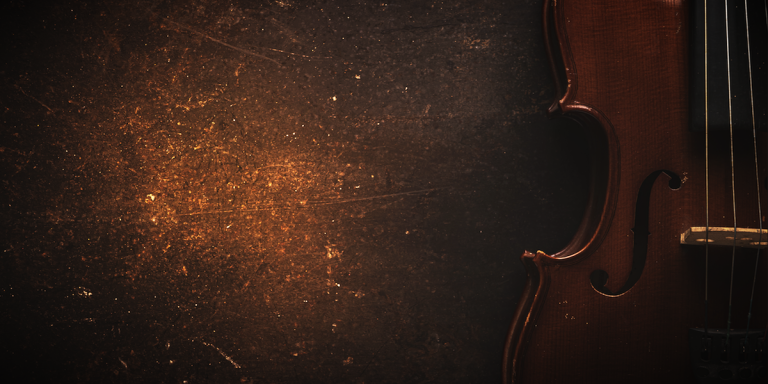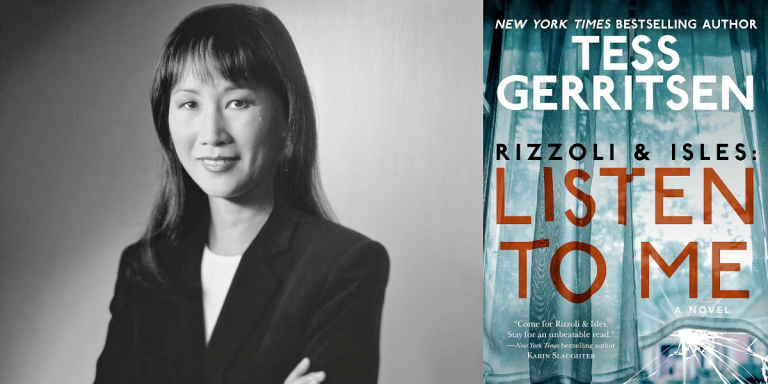‘The Liar’ and other Cold War Complexities with Benjamin Cunningham
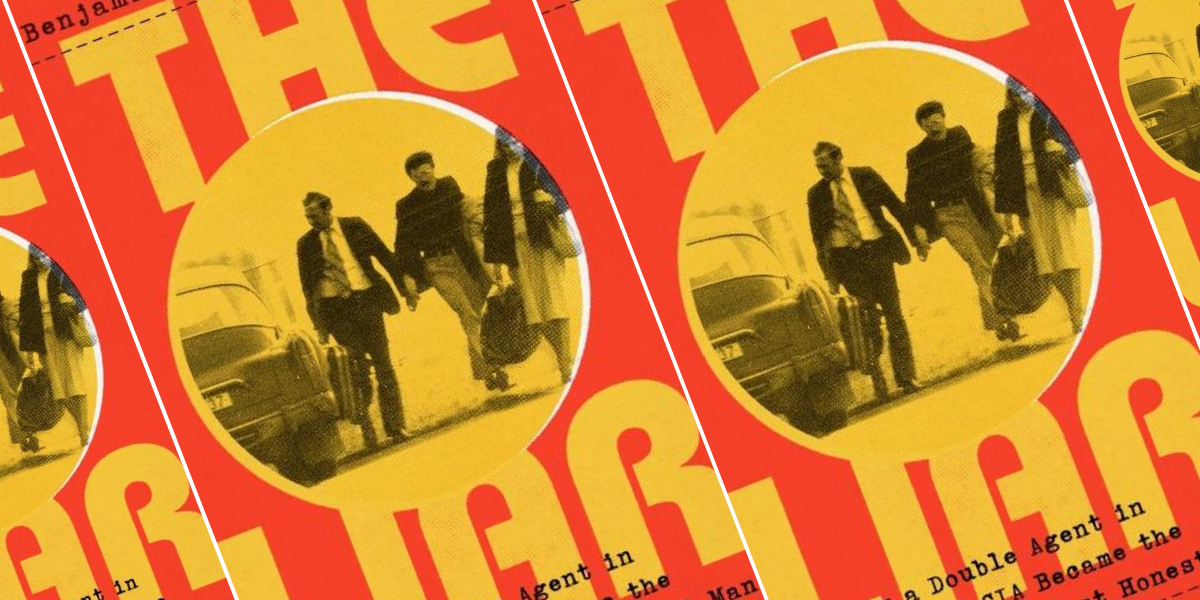 Though I am old enough to have lived through the latter years of the Cold War, many of my strongest impressions from this historical period come from books and films. My favorite Cold War stories, fiction and nonfiction alike, traffic in moral ambiguity. They are about human beings making their way in an imperfect world. Sometimes these characters have selfish motives, and other times it feels like systems or circumstances push them to do things they otherwise wouldn’t. I love a good spy tale, but remain wary of books that mythologize the Cold War.
Though I am old enough to have lived through the latter years of the Cold War, many of my strongest impressions from this historical period come from books and films. My favorite Cold War stories, fiction and nonfiction alike, traffic in moral ambiguity. They are about human beings making their way in an imperfect world. Sometimes these characters have selfish motives, and other times it feels like systems or circumstances push them to do things they otherwise wouldn’t. I love a good spy tale, but remain wary of books that mythologize the Cold War.
My book “The Liar” recounts the story of Karel and Hana Koecher, two so-called illegals who moved the United States as secret agents for their native Czechoslovakia in 1965. Karel eventually found employment inside the CIA, and used his position to funnel information back to his superiors in Prague.
I hesitate to spoil the twists and turns from the story, but let’s just say it helped to distill many of the central dilemmas confronting Cold War spies. I had a lot of questions I hoped to explore. What motivates somebody to become a spy? How does it feel to mislead people for a living? Is it possible to the right thing for the wrong reasons—and vice versa? Most of all, how does a real human being, not a caricature, cope with such unusual circumstances?
I wanted to write a book that went beyond the lazy good versus evil narratives that shackle most Cold War storytelling. Readers can judge how successful I was, but some of the books below inspired me to think about the history, politics and personalities of the Cold War era in a more multi-faceted way. There sure are a lot of black and white movies about the Cold War, but the realities were shades of gray.
This history of the Europe after World War II tracks developments on both sides of the Iron Curtain. This isn’t just a book about Germany, France and Russia, but Bulgaria, Poland and Czechoslovakia too. It’s easy to forget how devastated Europe was after the war, and by starting from the beginning Judt unearths the roots of the Cold War. Equally reliant on detailed data and colorful stories, Judt paints the most comprehensive possible portrait of Europe in the latter half of the 20th century—when Cold War politics interceded with daily life.
While John Le Carre is widely, and rightly, considered the king of the spy novel, Len Deighton’s books can feel like novels where the main characters just happen to be spies. “Berlin Game” is my favorite. The main character, Bernard Samson, is an Englishman who grew up in postwar Berlin. This makes him feel like an outcast no matter where he is. Set in the early 1980s, Samson must travel to East Berlin to help extract an East German asset, even as he senses there is a trader in his midst. There is a crazy twist at the end, and let’s just say things get personal.
Narrated by the fictional journalist Thomas Fowler, the story takes places as France’s colonial empire in southeast Asia is collapsing. As the United States looks to fill the power vacuum in 1950s Vietnam, Fowler, a young Vietnamese woman named Phuong and a CIA agent named Alden Pyle find themselves embroiled in a love triangle. The cynical Fowler looks on while the young, idealistic Pyle tries to influence politics in a country he hardly understands. Published in 1955 the novel foreshadows America’s own journey into the Vietnam War. Greene was himself a former MI6 agent.
Dobrynin arrived as the Soviet ambassador to the United States when John F. Kennedy was president, and stayed on through Ronald Reagan. His recollections in this fascinating memoir are equal parts quaint (in his early years Dobrynin walked the Washington D.C. streets freely and drove himself around on weekend trips) and infuriating. As I recount in “The Liar,” when Dobrynin went to the White House to tell President Lyndon Johnson that the Warsaw Pact had invaded Czechoslovakia in 1968, Johnson shrugged and poured Dobrynin a glass of whiskey. So much for Cold War rivalries.
This unique diary-like book by the Swiss writer Max Frisch sees him visit both the Soviet Union and the United States twice. A major figure in 20th century German-language theater and literature, Frisch is not so much neutral in his observations as he is anthropological. A 1968 trip to Moscow, reminds him of “a silent film with captions supplied by Party officials.” In 1970, Frisch lunches with Henry Kissinger in Washington D.C. Their meeting occurs just days after the United States and it’s South Vietnamese allies had launch incursions into neighboring Cambodia. “Cynics have never built a cathedral,” Kissinger says by way of justifying the escalating conflict. Frisch wonders whether Kissinger ever has—or will.
Many consider “From Russia With Love” to be the best James Bond novel, but I prefer this one—the first ever. Though I have nothing against the cartoonish big screen Bond (Connery is my guy), the books are more complex, nuanced and interesting. I find it amazing to read a book like this and imagine that there was a time when a character like James Bond wasn’t already around. In fact, it still seems almost inconceivable that one person dreamt him up. I was born into a world where James Bond already existed, and I am glad for it. Fleming ends chapters in a way that almost forces you to continue on to the next. As the author and literary scholar Umberto Eco once put it, Fleming is not quite an artist, but he “writes with art.”
Discover the Book
In the mid-1970s, the CIA and KGB watched Karel Koecher closely—they were both convinced he was working for the enemy. And they were both right. Traveling with his wife, Hana, Koecher posed as a Czechoslovak asylum seeker and arrived in the US as a Communist sleeper agent. After parlaying a doctorate from Columbia into a job at the CIA, Koecher proceeded to operate as a double agent at the height of the Cold War.
Shunning a low profile, the Koechers embraced Manhattan’s high life—with cocaine, swinging, and parties emblematic of the times and their penchant for risk. Hana, who was no more than a shy teenager when she arrived, grew into a sophisticated international diamond dealer who relayed messages to Karel’s handlers. Riding a wave of euphoria, the Koechers felt unstoppable. But it was too good to last.
Using newly declassified documents, interrogation tapes, and extraordinary firsthand accounts from the Koechers themselves, Cunningham reconstructs their double lives and the fading Cold War, where a strange moral fog made it hard to know what truth was being fought for, and to what end.
By clicking 'Sign Up,' I acknowledge that I have read and agree to Hachette Book Group’s Privacy Policy and Terms of Use
WHAT TO READ NEXT
